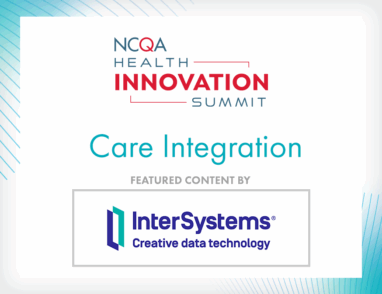What Wider Access to NCQA Digital Content Means
May 18, 2023 · Andy Reynolds
Last week, we announced that NCQA is publishing requirements and open-source software for interpreting and executing clinical quality language (CQL) so any organization or software developer can use HEDIS Digital Content Services.
The news caught the attention of technology pros on LinkedIn.
Here’s what quality advocates who are not technical experts—let’s call them “English majors”—should take from the news.
We announced that we’re making engine software open-source.
Engine software is computer code that takes measure instructions or measure logic, such as you find in HEDIS Volume 2, and calculates measure results.
With “open-source” code, any software developer can:
- See how the code works.
- Use the code.
- Improve the code.
Making code open-source means that we’re expanding and democratizing access to digital content. That, in turn, helps the digital measurement ecosystem grow.
Here’s an analogy that clicked with NCQA’s English majors:
- We built and released a scientific calculator . We’ve released a measure engine (a “calculator”) that processes HEDIS measures. Now other people can use or tweak that version of the calculator, and improve it.
Why did we do it? Well, “This action advances digital health care quality measurement by making it easy for developers to understand requirements and test capabilities to work with digital measure content from NCQA. The move is part of NCQA’s larger goal of building better health care, better choices and better health by convening and aligning stakeholders around digital quality requirements and testing.”
In other words…
- This is mission-critical. “Better health care, better choices and better health” is not a phrase we invented last week. It’s our vision statement—a description of the world we want to build. Widespread use of digital content is key to quality’s future and to NCQA’s purpose.
As our Chief Technology Officer, Edward Yurcisin, put it, “Data sharing and interoperability between payers and providers ensure timely and accurate measurement of health care quality. We’re advancing the standard so anyone, anywhere can use digital quality content from NCQA or other sources.”
- “Products” are becoming “digital.” More and more, the standards, measures and knowledge NCQA offers are digital. We produce data and machine-readable software that plug straight into IT systems—leaving behind the lengthy written instructions that must be interpreted and recoded into computers.
Last week’s announcement also named industry standards we’re adopting and organizations with whom we’re aligning:
Clinical Quality Language is an expression language curated by HL7 that CMS, NCQA and others have adopted for digital quality measures. NCQA uses CQL to provide digital HEDIS measure content, including the NCQA Digital Content Services product line launched in early 2023. Incorporating FHIR® CQL engine code in open-source code will help organizations use standards-based electronic health data with quality measures and clinical decision support to improve transparency and patient care.”
What does this mean?
- This is the opposite of “black box.” We’re using defined industry standards. Working in CQL aligns us with CMS’s advocacy of CQL and helps CQL spread. And by donating code to the open-source community, we let users run HEDIS-compatible software on any system (or “stack”) they choose. No walled gardens.
- This covers HEDIS, and then some. The code we’re contributing to the open-source community works with HEDIS. But it can work with other kinds of measures, too.
“Sharing FHIR CQL know-how… helps embed quality in health systems everywhere, and will help make FHIR CQL engine code for quality measures faster, more scalable and more extensible.”
We’re excited!
- Welcome, world! We’re hopeful that crowdsourced development will produce an extraordinary engine. We’re eager to see how others improve what we’ve donated. As software developers everywhere add features and improve the open-source code, digital measurement will advance.
In conclusion,
Firely manages the open-source .NET repository where NCQA will publish CQL software. NCQA and Firely will convene interested parties around requirements and testing.
- More Firely in our future. Firely is a big player in the FHIR community. They were one of the initiators of the FHIR standard and they offer software, training and services to implement FHIR. They’re also organizing FHIR DevDays (June, Amsterdam; NCQA Assistant Vice President for Digital Measure Engineering, Ann Marie Smith, and Director of Information Systems, Evan Machusak, will speak).
To learn more about FHIR CQL in support of digital quality measurement, contact our Digital Quality Community Director, Allison Lance.
- Interest in NCQA Digital Content Services is high. Allison can acquaint you with them.
- NCQA Digital Product Manager, Burke Burnett, introduced Digital Content Services at our February 2023 Future of HEDIS webinar—an event so popular we exceeded the capacity of our Zoom room. A recording and slides of that talk can catch you up on what you missed.
Look for more news about growing the digital measurement ecosystem. We’ll have more to share soon!







